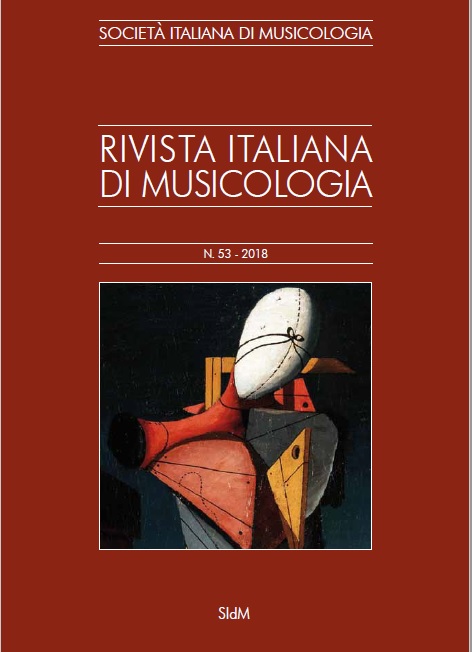«Se sei senza cervello, che ci posso far io?» Drammaturgia del comico nella produzione melodrammatica romana post-rospigliosiana (1668-1689)
Abstract
The history of musical drama in seventeenth-century Rome was characterised by an alternation between moments of intense productivity and rather long, unproductive phases. In particular, the years following the death of Clemens IX Rospigliosi saw Tordinona’s brief activity (1671-74) followed by the notable productive fragmentation of the 1680s. In those years, figures such as Constable Colonna, Cardinal Benedetto Pamphilj, Flavio Orsini and Pompeo Capranica competed in offering citizens a series of performances that have not yet received the same scholarly attention as the previous ‘Barberini seasons’. Mapping out the sources (music and librettos) hitherto discovered allows an accurate discussion of the various forms and tendencies of the ‘comic’ element. In fact, interesting results emerge from the analysis of the various scene, prologhi and intermedi within drammi per musica, commedie, «favole drammatiche musicali» and the few, yet significant, «burleschi» musical dramas staged in and around Rome in those years. The most common type was that of solo scenes for comic characters who acted in a rather buffoonesque manner, providing that folksy, even scurrilous colour that was quite appreciated by the Roman audience. Toward the end of the 1670s, a new character also appeared on the comic scenes, that of the young male servant with a soprano voice who lacked the circus-like comicality of the traditional comici. This figure contributed in eventually aligning spoken theatre with the tendencies of coeval musical dramaturgy.##submission.downloads##
Pubblicato
03/19/2018
Fascicolo
Sezione
Saggi


